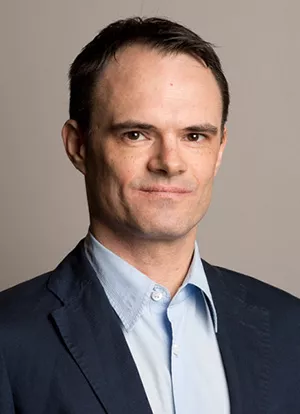Political Scientist Dominic Tierney on the Paradox of Russian Power

The Atlantic: Russia’s Strength Is Its Weakness
If you watched the body language of President Donald Trump and Vladimir Putin, the president of Russia, at their recent summit in Helsinki, you might have wondered: Which man leads a superpower? After all, Trump represents a country that is far stronger than Putin’s Russia. This is the paradox of Russian power—Moscow is influential precisely because it’s weak.
We often take it for granted that the greater a country’s economic and military resources, the greater its influence. But more capabilities doesn’t always mean getting your way, because they inspire resistance from other countries. Sometimes David has more sway than Goliath.
...
As the Cold War wound down, Moscow became dramatically weaker. The Soviet Union abandoned its empire in Eastern Europe. When the USSR disintegrated, Moscow lost half its population, while NATO and EU expansion brought the West directly into the Russian sphere. Today, Russia’s $1.58 trillion GDP is about the same as that of the greater New York City area, and less than one-twelfth that of the United States. Russia relies heavily on energy exports and faces falling birth rates. No wonder Putin called the collapse of the Soviet Union the “greatest geopolitical catastrophe of the century.”
Paradoxically, Russia’s waning power opened new avenues of influence. The collapse of the Soviet Union was an existential crisis for the Western alliance. In 2003, the Belgian prime minister wrote: “As long as Soviet divisions could reach the Rhine in hours, we obviously had a blood brotherhood with our cousins overseas. But now that the Cold War is over, we can express more freely our differences of opinion.” During the 2011 Libya campaign, President Barack Obama criticized allied “free riding,” and Trump has described NATO as “obsolete.” Meanwhile, Russian weakness may have helped undermine the European Union and encourage Brexit. The disappearance of the Soviet Union didn’t just weaken the Western alliance—it also helped sow divisions within the United States. While factors such as globalization, automation, and immigration certainly helped increase polarization and partisanship in American politics, without a common enemy, American politics soon became even more divided.
...
As a weaker player on the international stage, Moscow is also deeply pragmatic. Russia doesn’t launch crusades to build a beacon of freedom in Iraq. That’s the kind of luxury war that only a superpower can afford. Instead, Putin uses force in measured and sometimes brutal ways (as in Syria), cuts local deals, and talks to everyone: the Israelis, the Syrians, the Kurds, the Iranians. In Ukraine, Putin dials Moscow’s backing for separatist rebels up and down to keep the conflict rumbling and maximize his leverage, while still presenting himself as an indispensable peacemaker. No one is more keenly aware of Russian fragility than Putin—or more desperate to project an image of global prestige. And so, optics become crucial: See his confident performance at the Helsinki summit.
Even the greatest geopolitical catastrophes have their upsides. Losing an empire can be liberating.
Dominic Tierney is associate professor of political science, a senior fellow at the Foreign Policy Research Institute, and a contributing writer at The Atlantic. He is an expert in international politics with particular interest in U.S. foreign policy, public opinion and war, and broader international security issues. He completed his Ph.D. in international politics at Oxford University in 2003 and was a post-doctoral fellow at the Mershon Center at Ohio State University and the Olin Institute at Harvard University before joining the Swarthmore faculty in 2005.



